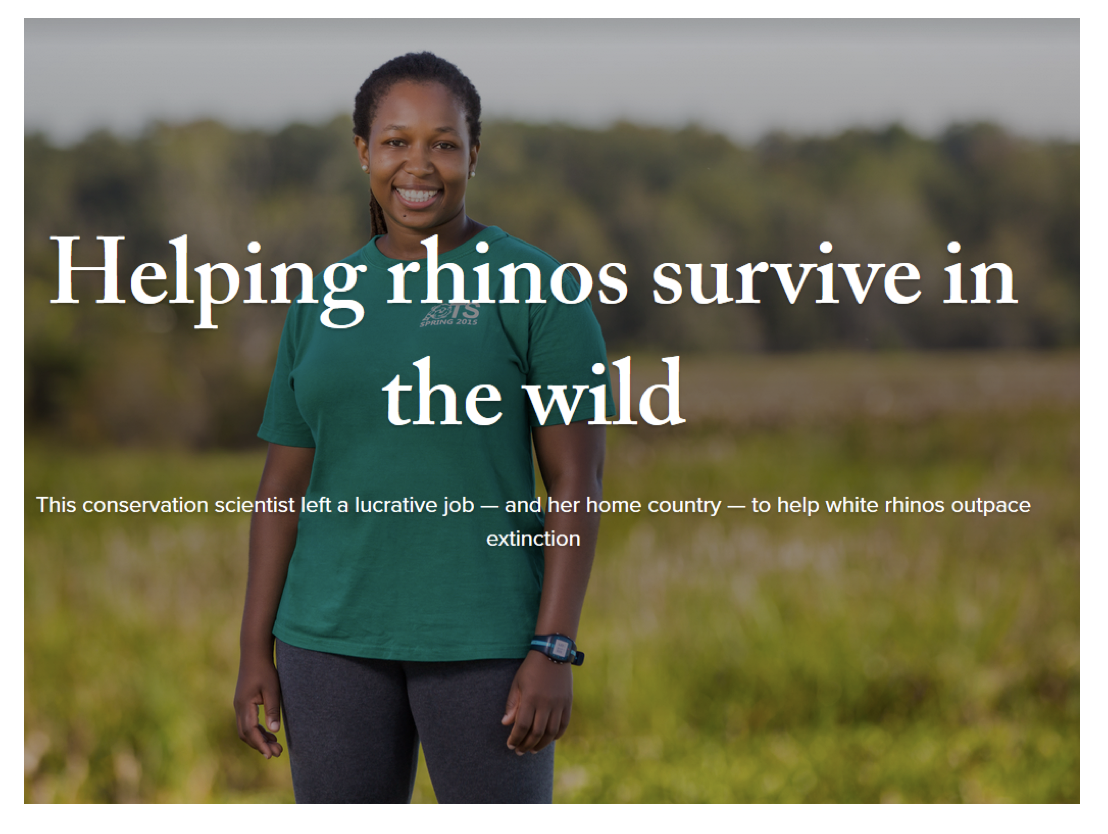Source: UF News
Zoliswa “Zoe” Nhleko studies white rhinos in South Africa. So why is she 8,000 miles away at the University of Florida.
Nhleko, a junior scientist with South African National Parks, came to UF to study wildlife ecology and conservation. She’ll use what she learns in her doctoral program to protect the species from extinction.
“Rhinos were brought back from the brink of extinction in the 1960s, and now they’re threatened again. To think we've let it get to this point is devastating,” she says.
After getting degrees in zoology and environmental management from Rhodes University and the University of South Africa, Nhleko landed a high-paying job with a water-purification company. Then she heard about the opportunity to work at Kruger National Park as a junior scientist, “basically an extended internship that gets you through your next degree.”
While it was hard to leave the security of her job and start school again, Nhleko made the leap.
“My friends who graduated from high school with me in 2003 have been working for a long time, and I'm still in school,” she laughs. “At the end of the day, I am so exhausted, but I like what I'm doing.”
Nhlenko’s interest in rhinos began with a simple question: What do the parks really need to know?
"I asked a regional ecologist, ‘What are the questions that you really need answers to, but don't have the manpower?’ One of them was the reproductive success of black rhinos. Are they reproducing or not? What is happening with the population?” The question appealed to her for its far-ranging impact. As a keystone species, rhinos anchor their ecosystems, which means management strategies that benefit rhinos benefit other species, too. And as part of the Big 5 — the charismatic megafauna on every safari-goer’s wish list — rhinos drive tourism, which supports one in 12 jobs in South Africa.
Typically, junior scientists at Kruger study at South African universities. But Bob McCleery, an associate professor in the UF/IFAS Department of Wildlife Ecology and Conservation, had heard about Nhleko through contacts at Kruger and offered her a spot in his lab. “After meeting her and seeing the kind of potential and passion she had, we decided we would try to bring her here,” he says.
“She's fearless. She never once hesitated.”
Nhleko does coursework in Gainesville during the academic year, then spends the summers studying white rhinos in Kruger — a biodiversity hotspot the size of New Jersey. Since the rhinos she studies have radio tags, satellite data can tell her what her subjects are up to at all times. She wants to understand the long-distance movements of white rhinos, which aren’t known to migrate.
“They stay in an area for a long time, then seem to just pack up and move great distances before settling in new areas again,” she says. “I will be trying to tease out what triggers them, which individuals do these movements and whether they occur all year round or during certain seasons.”
To read the full story visit here.

